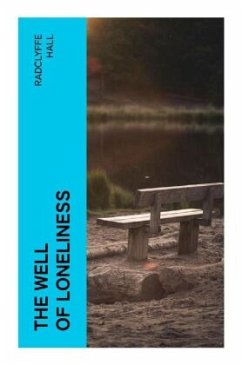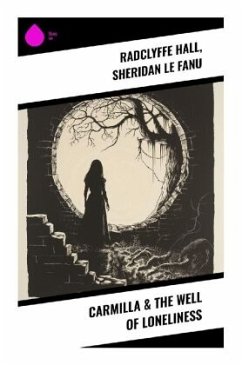
The Well of Loneliness
Versandkostenfrei!
Versandfertig in 6-10 Tagen
19,00 €
inkl. MwSt.

PAYBACK Punkte
0 °P sammeln!
Radclyffe Hall's "The Well of Loneliness" is a poignant exploration of gender identity and sexual orientation, narrated through the life of Stephen Gordon, a woman who embodies masculine traits and struggles to find her place in a society that vilifies difference. Hall employs a richly evocative literary style, steeped in modernist influences, interweaving lyrical prose with profound psychological insight. The novel deftly critiques the prevailing societal norms of the early 20th century while addressing the pressing issues of the LGBTQ+ community, marking it as a seminal work in both LGBTQ+ l...
Radclyffe Hall's "The Well of Loneliness" is a poignant exploration of gender identity and sexual orientation, narrated through the life of Stephen Gordon, a woman who embodies masculine traits and struggles to find her place in a society that vilifies difference. Hall employs a richly evocative literary style, steeped in modernist influences, interweaving lyrical prose with profound psychological insight. The novel deftly critiques the prevailing societal norms of the early 20th century while addressing the pressing issues of the LGBTQ+ community, marking it as a seminal work in both LGBTQ+ literature and feminist discourse. Radclyffe Hall, an openly lesbian author, drew from her own experiences of societal exclusion and personal isolation to craft this unflinching narrative. Her background in the arts, combined with her circle of prominent literary figures, including Virginia Woolf, informed her bold approach to crafting a deeply emotional yet politically charged text. Hall's bravery in confronting the taboo of same-sex love during her time solidified her status as a trailblazer in literature and a voice for the marginalized. I highly recommend "The Well of Loneliness" to readers seeking both a historical perspective on LGBTQ+ issues and a deeply sympathetic portrayal of the struggles faced by those outside societal norms. Hall's masterful storytelling invites readers into a world of longing and resilience, making it an essential read for anyone interested in the complexities of identity and love.












